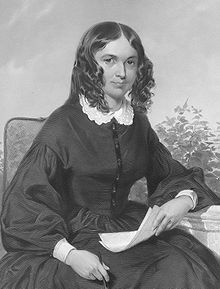William Earnest Henley
Out of the night that covers me,
Black as the Pit from pole to pole,
I thank whatever gods may be
For my unconquerable soul.
In the fell clutch of circumstance
I have not winced nor cried aloud.
Under the bludgeonings of chance
My head is bloody, but unbowed.
Beyond this place of wrath and tears
Looms but the Horror of the shade,
And yet the menace of the years
Finds, and shall find, me unafraid.
It matters not how strait the gate,
How charged with punishments the scroll.
I am the master of my fate:
I am the captain of my soul.
Analysis
Invictus, meaning "unconquerable" or "undefeated" in Latin, is a poem by William Ernest Henley. The poem was written while Henley was in the hospital being treated for tuberculosis of the bone, also known as Pott's disease. He had had the disease since he was very young, and his foot had been amputated shortly before he wrote the poem. This poem is about courage in the face of death, and holding on to one's own dignity despite the indignities life places before us.
In the first stanza the poem's speaker prays in the dark to "whatever gods may be" a prayer of thanks for his "unconquerable soul." Several things are apparent from the outset: First, the speaker is in some sort of metaphorical darkness, perhaps the darkness of despair. Second, he does not pray for strength, but gives thanks for the strength that he already has. Third, he seems rather flippant about who he is or is not praying to; it is almost a prayer to himself at this point, but not quite.
The seeming agnosticism of the first stanza continues in the second. He does not talk about God's will or even fate; instead he speaks of "the fell clutch of circumstance" and "the bludeonings of chance," and asserts that he has overcome these bravely and without complaint.
The third stanza is about death and what a trifle it seems to the speaker of the poem. This "place of wrath and tears", this life, it seems, is not full enough of pain and horror to frighten the poem's speaker. And death, "the Horror of the shade," could not possibly worry him, being an end to "wrath and tears". Notice here that he is not concerned in any way about an afterlife. Death is merely an end to suffering for our speaker. Nothing of any concern seems to lie beyond for him until....
The one line of this poem that seems to give people the most trouble is this reference to a "strait gate". "It matters not how strait the gate" is either a reference to John Bunyan's tract The Strait Gate, or Great Difficulty of Going to Heaven (1676), or the the scripture Bunyan got his title from Matthew 7:13, 14.
The poet William Ernest Henley would likely have been familiar with one or both of these sources. So we can read the stanza as an acceptance of whatever judgment or doom death may bring. He accepts no master but himself. He bows to no authority. He is his own god, guide and judge. He is the Captain.
(Henley was a lifelong atheist, and, with his missing leg and braggadocio, he was also the inspiration for the character of Long John Silver in Robert Louis Stephenson's Treasure Island, a Captain indeed.)
Read more: http://wiki.answers.com/Q/What_is_the_meaning_of_the_poem_Invictus#ixzz1elMpopkE
.jpg)







